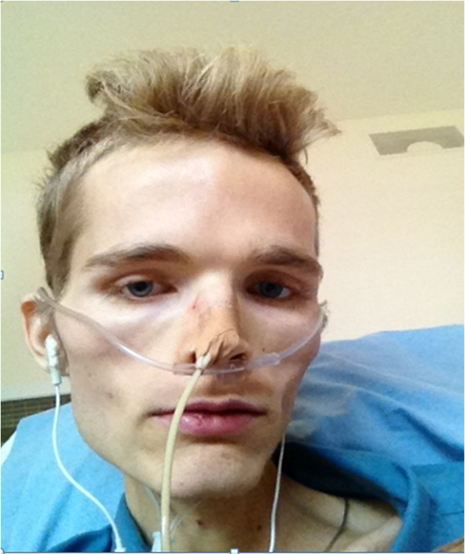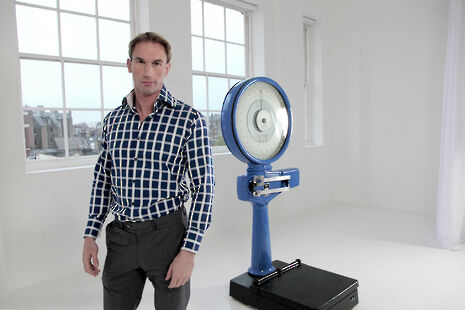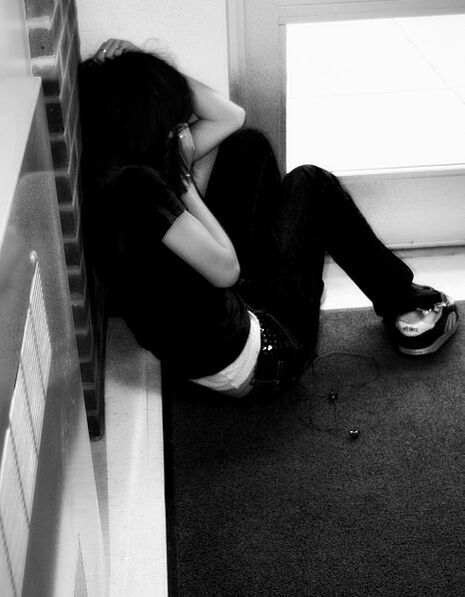Mental Health on TV: Why it matters to me
Henry Moore and an anonymous student talk about their own experiences with mental health and their relationship with its portrayal on television
Henry's story:
From programmes addressing mental illness obliquely, to documentaries confronting them explicitly, television’s portrayal of mental health issues is deeply problematic. This week, the start of Mental Health Week coincides with the end of the first series of My Mad Fat Diary. This E4 series has been extremely popular, garnering acclaim for its forthright tackling of mental-health issues. Rae, the protagonist whose four-month stay in psychiatric hospital has ended, attempts to reintegrate into a society which stigmatises and misunderstands mental illness.

This is not to say that sufferers are not faultless. Indeed, during my own four-month stay in a Dutch psychiatric ward, another youngster showed his misunderstanding of auto-mutilation (self-harm) by interpreting ‘auto’ to mean the Dutch word for ‘car’. If vandalism of cars can be the interpretation of the bewildering dialogue of mental illness, then programmes are missing the chance to educate youngsters about mental health on a global scale.
Indeed, not only is television missing an educational opportunity, it is misleading viewers as to the causes and nature of mental illness. Channel 4’s Supersize vs. Superskinny masquerades as an educational programme, but often seriously misrepresents eating disorders, which are some of the most deadly mental illnesses. Not everyone with an eating disorder is female, or trying to look attractive. Whilst Channel 4’s programme does not fall into the gender trap, it often presents individuals who are motivated by vanity. This can have the effect of negatively persuading viewers that eating disorders are somehow a manifestation of narcissism.
This is not so. Having personally spent December 2012 fighting for my life in hospital, being fed through a tube, I am certain that vanity is seldom the true cause of an eating disorder. Anorexia nervosa, in particular, can stem from personal trauma and an unhealthy desire to control natural impulses. To suggest that vanity causes all eating disorders is to ignore the subtle multiplicity of underlying personal issues which can cause a human to fight all instincts and willingly starve to death.

These programmes not only misrepresent, but also glamourise mental illness. Channel 4’s unashamed general invitation to take the ‘chance to appear on your favourite Channel 4 show’ is appalling in light of the subject-matter treated in Supersize vs Superskinny. Rather than encouraging sufferers to bare all on television, broadcasters should responsibly engage with sober attempts to demystify mental illness. Advocates of such programmes will point to their innocent entertainment value; however, as a society, we must ask ourselves whether it is a healthy mind that is entertained by the plight of the mentally ill.
In 1962 Ken Kesey – in One Flew Over the Cuckoo’s Nest – violently objected to the way “movies paint crazy people,” and suggested that true madness might in fact lie with society’s standard-bearers. Half a century later, we are faced with an unprecedented battle against mental illness, and it is time to realise that we cannot conquer society’s demons without first confronting our own unhealthy appetites for entertainment.
Anonymous Student's story:
One in four of us will suffer from some form of mental illness during our life. It is an inescapable fact of life. The potential to develop a mental illness, be it depression or bulimia, lies within all of us, in varying degrees. And then it catches up with you. You find yourself trapped in a downward spiral, wondering how- you got there. The scariest thing is that you may not even recognise the symptoms.
It took me, my family and psychiatrists several years to put a label onto what I was feeling. After dozens of dismissals and suggestions that I had ‘a nice relaxing bath’, I was finally diagnosed with depression. Months of feeling lost inside a black abyss slowly came to an end as someone finally recognised that I needed more than ‘a bit of fresh air’ and prescribed Fluoxetine and gave me Cognitive Behavioural Therapy sessions.

Lack of awareness of mental illness and playground prejudices, in part perpetuated by popular TV programmes resulted in people, even friends, actively distancing themselves from me. People would stare, interrogate me about my absence from school, make me feel like I was an attention seeker, a freak, worthless. I wanted to scream, to cry, to disappear, to tell them they too could suffer from a mental illness one day. But the silence suffocating mental health was impenetrable, no one talked, everyone stared.
The stigma and misconceptions surrounding mental illness today in our media-saturated world are still far reaching and pervasive. The media, all too often, potently perpetuate negative stereotypes, fueling prejudices in society. The Norman Bates-esque axe-wielding maniac has been a commonly used dramatic device for decades. What is more, the terms used to refer to mentally ill characters are usually pejorative or flippant. We are bombarded with insults such as ‘crackpot’ or ‘basket case’ which can all too easily take hold in our minds. When we learn someone has been diagnosed with bipolar, we may fumble for an appropriate reaction. We will probably just avoid them all together; seems like the safest option.
Yet what we are led to believe is fact by the media, is merely fiction. The vast majority of people who suffer from some form of mental illness pose no threat to society; they go to school or work, they have interests, they have a sense of humour. I know I do. People I have met at university only know about my battles with depression because I have told them, not because I have some hideous scar on my forehead that screams mentally ill. Largely thanks to campaigns such as Mental Wealth or Time to Change, we are gradually normalizing mental illness, but such efforts are futile if television and film producers continue to bombard us with psychotic characters whose identity is entirely consumed by their mental illness.
It’s when the real gets entangled with the fictional, that the battle to bring mental illness out of the dark corner of taboo becomes all the more challenging. The media have the power to positively raise awareness and in turn, they could play a role in helping people to recognise the symptoms of mental illness and seek treatment so that no one has to struggle in silence in the way I did.
So next time you think your friend seems a bit out of sorts, perhaps try just to listen empathetically. They won’t be expecting you to transform into their councilor or offer them a miraculous solution. Be a friend who doesn’t judge, but quietly supports. Just be there for them, one day you might need them to be there for you.
 News / Cambridge academics stand out in King’s 2026 Honours List2 January 2026
News / Cambridge academics stand out in King’s 2026 Honours List2 January 2026 Interviews / You don’t need to peak at Cambridge, says Robin Harding31 December 2025
Interviews / You don’t need to peak at Cambridge, says Robin Harding31 December 2025 News / AstraZeneca sues for £32 million over faulty construction at Cambridge Campus31 December 2025
News / AstraZeneca sues for £32 million over faulty construction at Cambridge Campus31 December 2025 News / News in Brief: Maypole mentions, makeovers, and moving exhibits4 January 2026
News / News in Brief: Maypole mentions, makeovers, and moving exhibits4 January 2026 Features / “It’s a momentary expression of rage”: reforming democracy from Cambridge4 January 2026
Features / “It’s a momentary expression of rage”: reforming democracy from Cambridge4 January 2026









